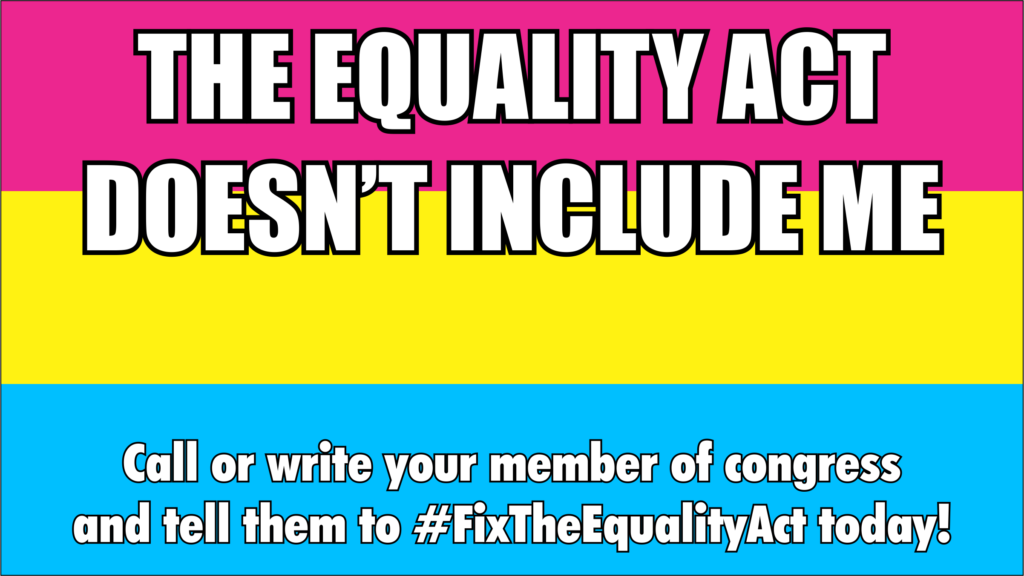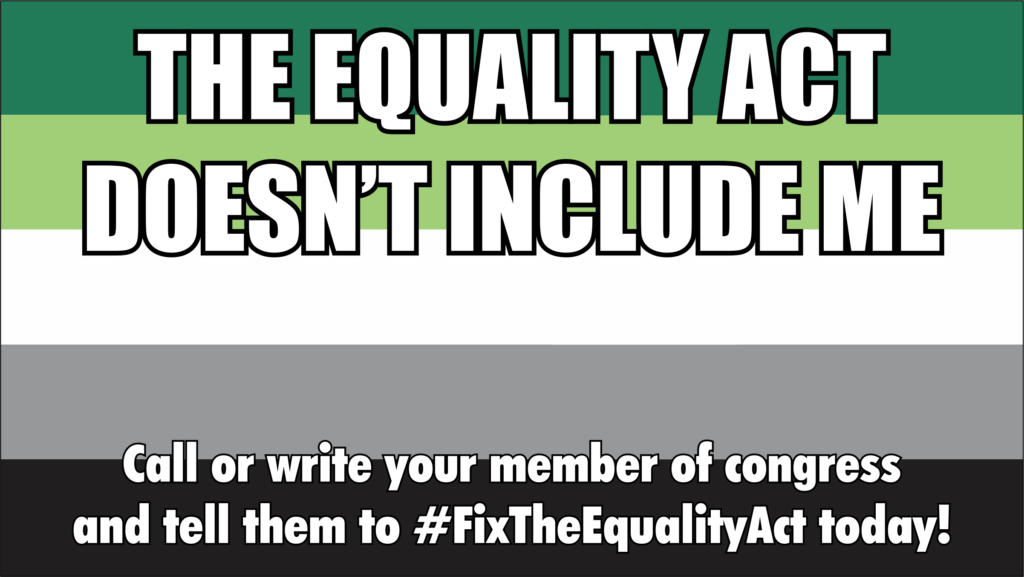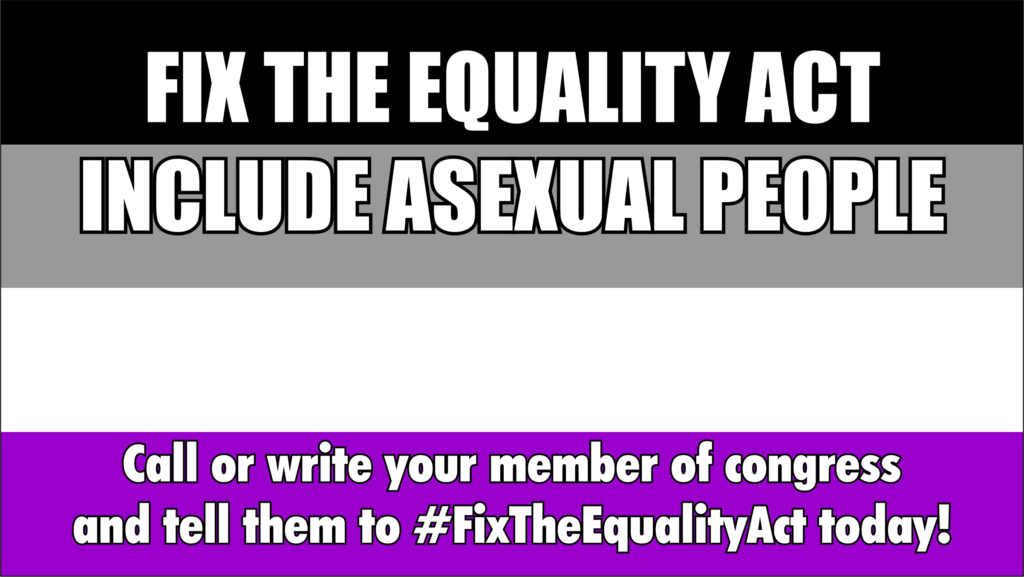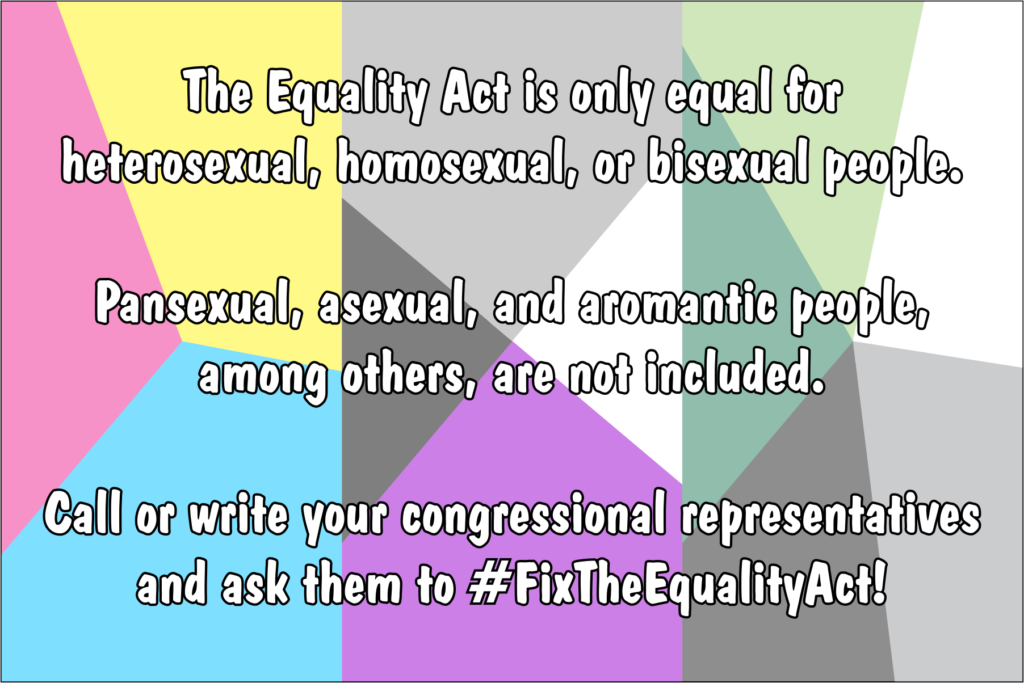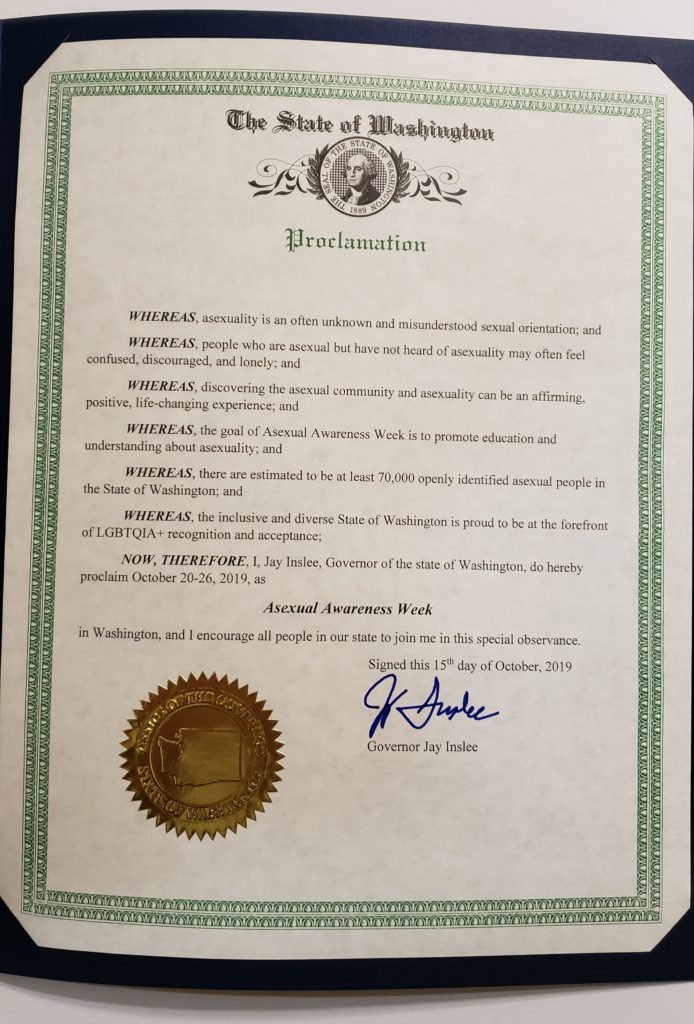This is a quick look at some US cities which have ordinances which include asexuality and a brief description of what they say and what they cover. This is not meant to be a comprehensive look at every city everywhere.
Previously, it was thought that only a handful of places (most notably NYC, San Antonio, and Albany) had ace-inclusive laws on the books. But apparently no one bothered taking a step back and looking wider to try to see just how many cities and counties had them. I just did that and whoa nelly holy crow, there’s a lot more than I imagined. Here are just a few of them
(I have tried to include a date for when asexuality was included, but it is not always apparent or confirmable. Uncertain dates have a question mark.)
Albany, NY
General anti-discrimination law.
The term “sexual orientation” includes actual or perceived heterosexuality, homosexuality, asexuality and bisexuality.
Anchorage, AK
General anti-discrimination law. Added 2015.
Sexual orientation means actual or perceived heterosexuality, homosexuality, bisexuality, or asexuality.
Columbia, MO
General anti-discrimination law. Added 2018.
Conversion therapy ban. Added 2019.
Sexual orientation. The preference or practice of homosexuality, heterosexuality, asexuality, and bisexuality, or some combination thereof, by consenting adults, or as perceived by others, but not including sexual preference or practice between an adult and a minor.
Shared definition:
Decatur, GA
General anti-discrimination law. Added 2019?
Sexual orientation means an individual’s actual or perceived orientation as heterosexual, homosexual, bisexual, pansexual or asexual.
Denver, CO
Conversion therapy ban. Added 2019?
Sexual orientation means a component of identity that includes a person’s sexual and emotional attraction to another person and the behavior and/or social affiliation that may result from this attraction. A person may be attracted to men, women, both, neither, or to people who are genderqueer, androgynous, or have other gender identities. Individuals may identify as lesbian, gay, heterosexual, bisexual, queer, pansexual, or asexual, among others.
Galveston, TX
Fair housing law. Added 2016.
Sexual orientation means an individual’s real orientation or orientation perceived by another as heterosexual, homosexual, bisexual or asexual.
Idaho Falls, ID
General anti-discrimination law. Added 2020.
Sexual Orientation. Actual or perceived romantic, emotional, or sexual attraction or activity, including homosexuality, heterosexuality, bisexuality, and asexuality.
https://www.idahofallsidaho.gov/DocumentCenter/View/169/Chapter-11—Non-discriminationPDF
Juneau, AK
General anti-discrimination law. Added 2016.
Sexual orientation means actual or perceived heterosexuality, homosexuality, bisexuality, or asexuality.
Kansas City, MO
Conversion therapy ban. Added 2019.
Sexual orientation means the preference or practice of homosexuality, heterosexuality, asexuality, and bisexuality, or some combination thereof, by consenting adults, or as perceived by others, but not including sexual preference or practice between an adult and a minor.
Lansing, MI
General anti-discrimination law. Added 2006 or 2016?
Sexual orientation: A person’s sexual identity in relation to the gender to which they are attracted; the state of being heterosexual, homosexual, bisexual, or asexual.
Middletown Township (Bucks County), PA
General anti-discrimination law. Added 2020
Notable for explicit aromantic inclusion! The first instance of it I’ve found anywhere.
SEXUAL ORIENTATION – actual or perceived sexual and/or romantic attraction and/or feelings toward other individuals. The term includes, but is not limited to, individuals who are heterosexual, homosexual, gay, lesbian, bisexual, queer, asexual, aromantic, and/or questioning.
Minneapolis, MN
General anti-discrimination law. Added 2019
Sexual orientation: A component of identity that includes a person’s sexual and emotional attraction to another person and the behavior and/or social affiliation that may result from this attraction. A person may be attracted to men, women, both, neither, and/or to people who are genderqueer, androgynous, or have other gender identities. Individuals may identify as lesbian, gay, heterosexual, bisexual, queer, pansexual, or asexual, among others.
Newtown Township (Bucks County), PA
General anti-discrimination law. Added 2018
Notable for explicit aromantic inclusion! From 2018, this is the earliest instance of it I’ve found anywhere.
SEXUAL ORIENTATIONActual or perceived sexual and/or romantic attraction and/or feelings toward other individuals. The term includes, but is not limited to, individuals who are heterosexual, homosexual, gay, lesbian, bisexual, queer, asexual, aromantic and/or questioning.
New York, NY
General anti-discrimination law. Added 2018.
Sexual orientation. The term “sexual orientation” means an individual’s actual or perceived romantic, physical or sexual attraction to other persons, or lack thereof, on the basis of gender. A continuum of sexual orientation exists and includes, but is not limited to, heterosexuality, homosexuality, bisexuality, asexuality and pansexuality.
Palm Beach County, FL
Fair Housing & Public Accommodation Law Added 2019.
Equal Employment Law Added 2017?
Sexual orientation means heterosexuality, homosexuality, bisexuality or asexuality, whether actual or perceived.
Common definition:
Richmond, CA
Health equity law. Added 2015.
These communities include, but are not limited to women, people of color, low-income individuals and families, individuals who have been incarcerated, individuals with disabilities, individuals with mental health conditions, children, youth and young adults, seniors, immigrants and refugees, individuals who are limited-English proficient (LEP), and lesbian, gay, bisexual, transgender, questioning, intersex and asexual (LGBTQIA) communities, or combinations of these populations.
Rochester, NY
General anti-discrimination law. Added 2001?
SEXUAL ORIENTATION Homosexuality, heterosexuality, bisexuality or asexuality, whether actual or perceived.
San Antonio, TX
General anti-discrimination law. Added 2013
Sexual orientation means an individual’s real orientation or orientation perceived by another as heterosexual, homosexual, bisexual or asexual.
https://library.municode.com/tx/san_antonio/codes/code_of_ordinances?nodeId=PTIICO_CH2AD_ARTXNSCPO
Volusia County, FL
General anti-discrimination law. Added 2011?
Sexual orientation shall mean an individual’s actual or perceived heterosexuality, homosexuality, bisexuality or asexuality.
(Sourcing note: You’ll notice that most of these are from a site called “municode”. That’s a service that allows municipalities to publish their laws and codes on the Internet. These were found by doing a general web search for “municode asexual” and digging through the results. It is likely that the Municode wide search product would turn up more results. It is also likely that the same approach could be taken with other municipal code repositories to find more. I have selected the locations I have heard of. There are many more which were not familiar to me which I did not include.)
(Correction: An earlier version incorrectly identified Middletown Township, Bucks County, PA, as just Middletown, PA, which is apparently a different place. Sorry about that. I bet you get that all the time.)

